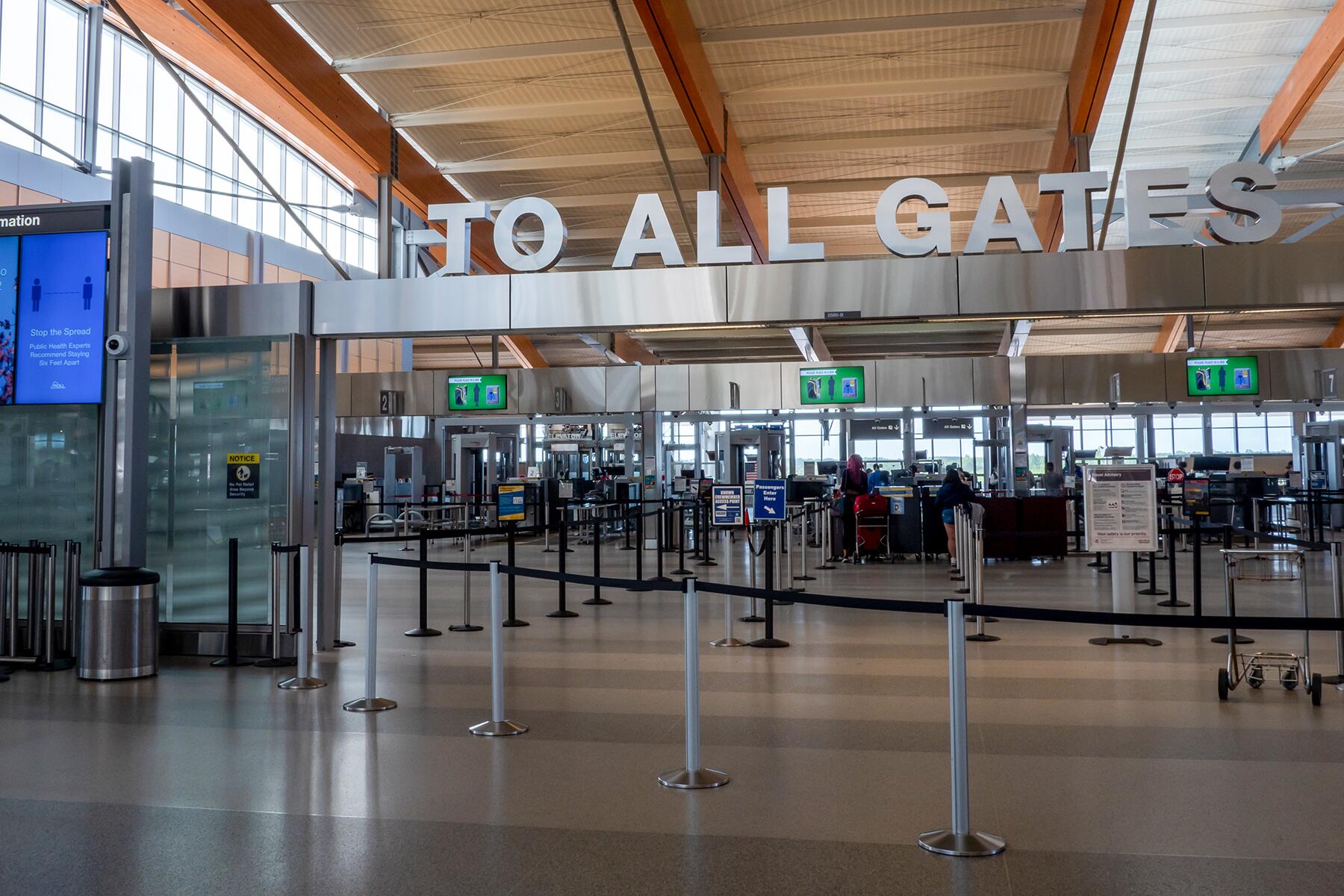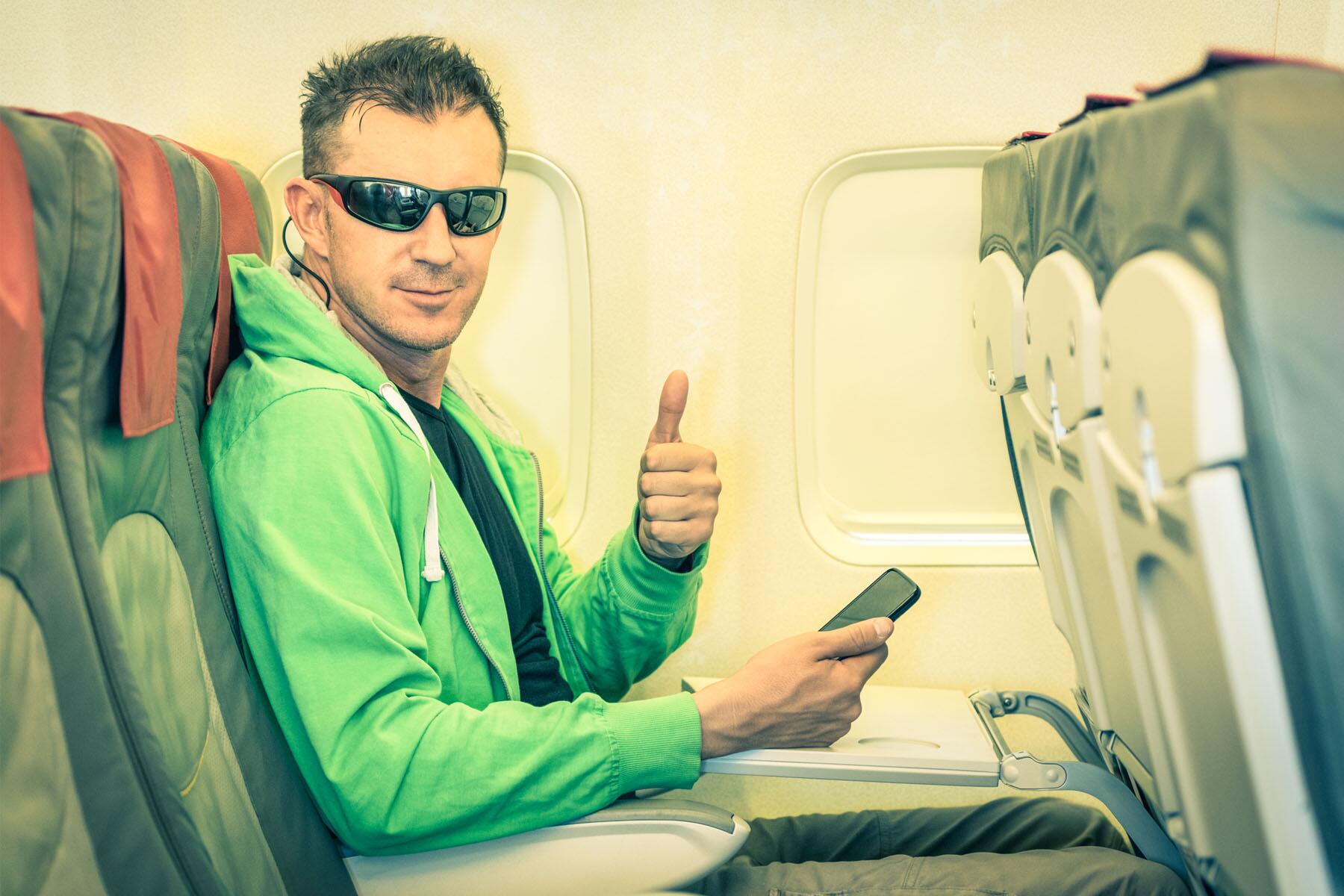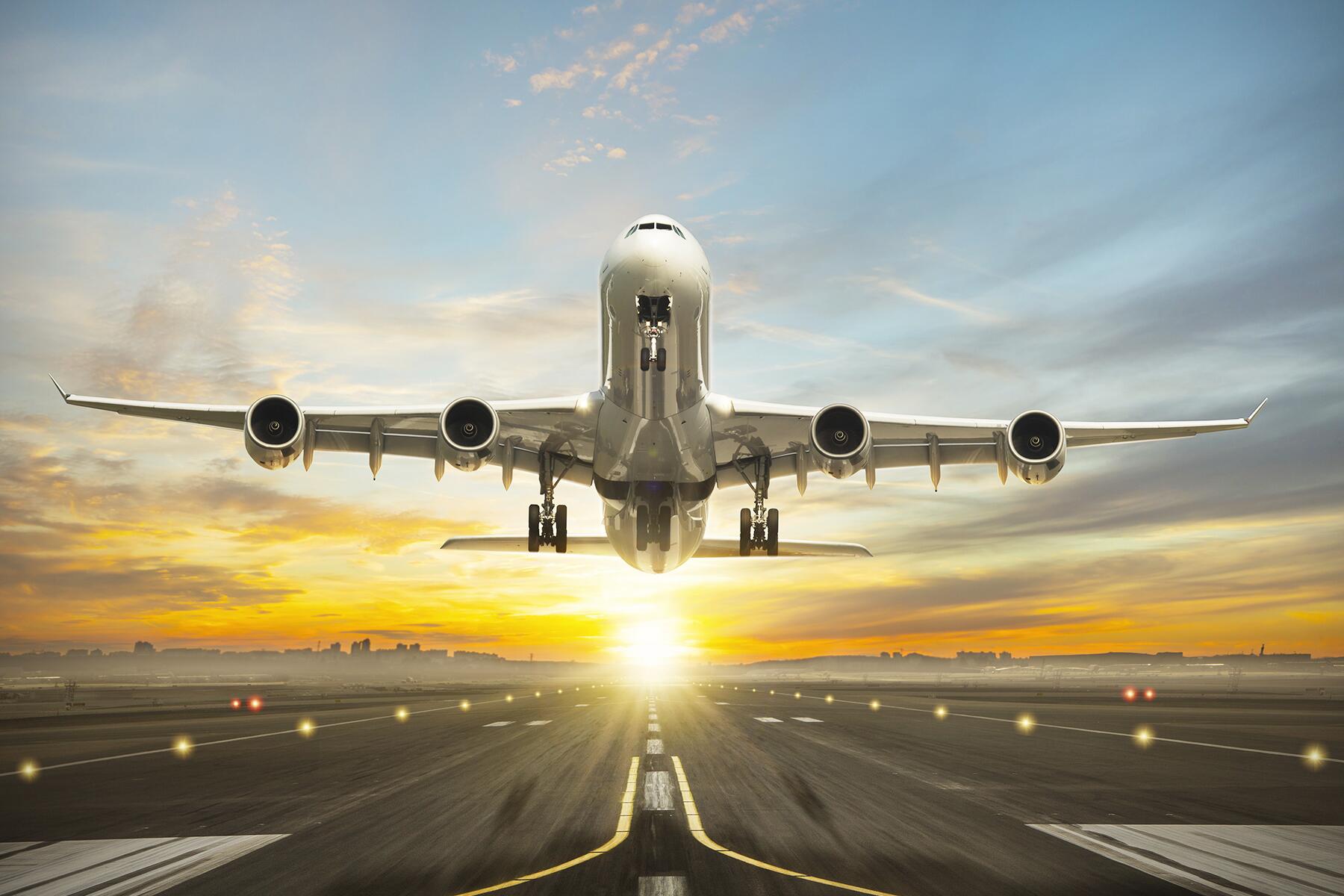From TSA to boarding to baggage claim, what’s safe and what’s not?
Understandably, we’re all afraid to fly right now. Afraid of catching COVID, afraid of mile-long lines, afraid of cramped airplanes, and afraid of conspiracy theorists who think Bill Gates is microchipping masks to control our brains.
To combat those fears, airlines have begun to step up, reassuring customers that their experiences will be safe, sound, and sane. American Airlines has started working with the Global Biorisk Advisory Council to get a GBAC STAR rating for their disinfecting and cleaning practices. They’re requiring all travelers and employees to wear face masks, asking customers to certify that they’ve been free of COVID symptoms for 14 days prior to check-in, and are using HEPA filters to help keep the air inside the planes cleaner.
United Airlines is also using HEPA filters, which supposedly remove 99.97% of all air particles every couple minutes. In addition to that, United is also using electrostatic sprayers to disinfect all surfaces during their routine cleaning between flights and also requiring face coverings for everyone.
Do you know why Hong Kong has had less than 10 COVID deaths? They have a 97% mask-wearing rate. It’s not a conspiracy.
Delta Air Lines has partnered with the Mayo Clinic and Quest Diagnostics to get all of their employees tested for COVID, but they’re also blocking all middle seats and limiting capacity on all flights to ensure social distancing for customers throughout their flying experiences.
American Airlines and Southwest Airlines also announced on July 22 that they’ll be unable to transport any individuals who aren’t wearing a face covering, even if the customer has a medical condition.
Recommended Fodor’s Video
But questions still loom: How will you know if your plane will be socially distanced? How can you be sure the airlines won’t sell extra seats if demand spikes? Why does every airline have a different policy, and which one is the safest? Will. I. Be. Safe?
To alleviate you from doing hours upon hours of research, digging through airline websites, watching webinars with CEOs, and reading through legal documents, there are some basic things you can personally do that can put your mind at ease–at least for starters.
First things first, wear a mask. This isn’t about personal freedom and the government bearing down on your rights. This is about not being selfish and protecting both yourself and others around you. Do you know why Hong Kong has had less than 10 COVID deaths? They have a 97% mask-wearing rate. It’s not a conspiracy.
Secondly, bring hand sanitizer. Airlines are starting to provide more sanitization stations, but maybe don’t risk their supply running out by keeping your own on hand.
The flight attendants, the pilots, the cleaning crews, and even TSA are as human as you are, have families they worry about, and all want to stay safe and healthy.
Thirdly, bring sanitary wipes. Airport cleaning crews are stressed to the limits. They’re expected to incorporate all new sanitation standards and protocols, under massive time constraints, while also worrying about their own safety (all while making very little money). Be thankful for them, but also be cautious in case they missed anything under these parameters. Always wipe down your seat, armrests, tray tables, seatbelts, air vents, window coverings, etc.
And while all of these personal responsibility safety measures are great, what can you do about the airlines and their policies? Like most things these days, there’s a software solution for that.
If you want a one-stop-shop for all airline policies while you’re booking your flight, download the Pilota Chrome extension on your computer. Once it’s downloaded, go to Google Flights to search for your next trip and Pilota will automatically provide you with extensive detail about everything the airlines are doing to keep you safe.
The metrics are pretty substantial. Pilota can tell you if the flight you’re booking has air filtration systems, boarding sanitation measures, capacity capping, whether they provide personal protective equipment (PPE), mask policies, rebooking and cancelation flexibility, food hygiene upgrades, social distancing, seat blocking, and cabin sanitation. Yes, all of that!
Every single flight gets a star rating based on Pilota’s criteria and can provide much-needed peace of mind when and if you decide to ever fly again. Can Pilota guarantee a safe experience on your next flight? Of course not. But they can get you armed with information that can make your buying decision a lot easier.
Even with programs like Polita helping guide your flying decisions, you should still bring your own PPE and be mindful of surfaces you touch. Most importantly, keep washing your hands, don’t touch your face, and realize that everyone is stressed out and nervous. The flight attendants, the pilots, the cleaning crews, and even TSA are as human as you are, have families they worry about, and all want to stay safe and healthy. Do your part, do your research, and maybe we can all make flying safe, sound, and sane once again.




Pilota? Political? Lol. I can't tell if that was supposed to be a joke or not. But if she's really blocking Fodor, I guess I'll never know. Well written article with lots of good information. Thanks for the tip on the chrome extension.